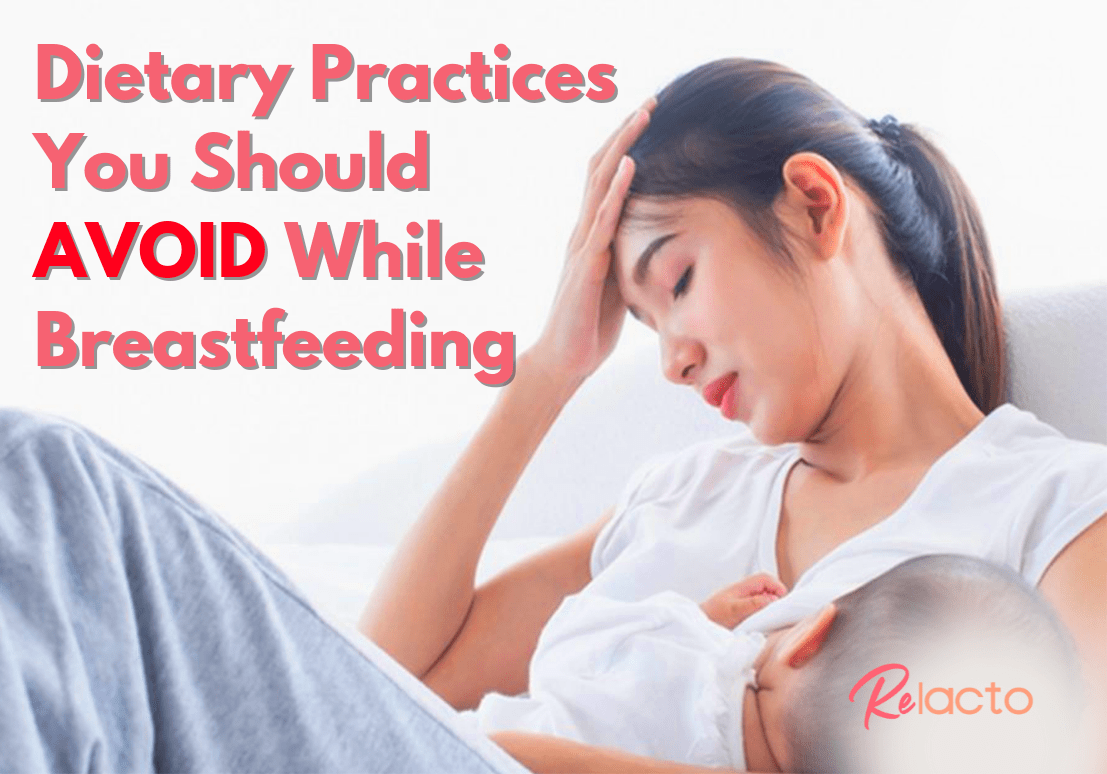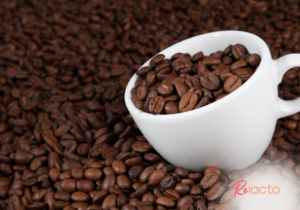Dietary Practices You Should Avoid While Breastfeeding

You have finally finished your post-pregnancy confinement period and are now ready to face the world as a new mother. Congratulations! Even though you are no longer pregnant, you are still breastfeeding and need to be mindful of the food and drink you consume. Here are some dietary practices you should avoid while breastfeeding.
Skipping Meals
For many new mothers, the post-pregnancy period is a time to focus on eating healthy and nutritious meals. This is especially important if you are breastfeeding. What you eat while breastfeeding may affect some nutrients in the breast milk which are dependent on maternal intake such as Vitamin B, Vitamin A, Iodine, Omega 3-DHA, Choline and many more.
Skipping meals while breastfeeding is never a good idea as you may lose weight but at the expense of your own health. This would put you in a position where you are more nutritionally depleted which may delay wound healing especially during early postpartum. Besides that, being nutritionally depleted would also put yourself at a less than ideal health status for the next pregnancy. Other complications before and during the next pregnancy may arise and we want to avoid that as much as possible.
Keto Diets
While ketogenic diets have been gaining popularity over the last few years and promise fast weight loss, breastfeeding mothers should be aware of the risks involved. The ketogenic diet is an extremely low-carbohydrate, high-fat and protein diet that forces the body to burn fat for fuel instead of carbohydrates.
This may lead to successful rapid weight loss, but it can lead to nutritional deficiencies, dehydration or electrolyte imbalances when done unsupervised, too early in postpartum or while breastfeeding. Such a diet practice can lead to lactation ketoacidosis. Lactation ketoacidosis should not be treated lightly. Mothers who are diabetic or do not eat enough while breastfeeding are also at high risk of being in a ketogenic state. During this state, ketones accumulate, if too much in the bloodstream, it can l potentially be life threatening to the mother. Besides that, ketones are transferable to the breastmilk. As little research is done to understand the impact of ketones on an infant’s brain and general development. Thus, healthcare professionals often recommend mothers to avoid keto diets while breastfeeding and eat adequately too!
Thankfully, despite not eating enough, our bodies are biologically tuned to produce energy from fat stores, subsequently more breast milk for the infant. That is why breast milk supply is not affected but at the expense of the mother’s health. In very rare cases, some mothers may experience lower milk supply.
Drowning In Your Morning Coffee

Now that you and baby are home, you may be feeling like you need an extra pick-me-up in the form of caffeine. However, as a breastfeeding mother, you should limit your coffee intake.
Like alcohol, caffeine can also pass through your breast milk. Caffeine can cause your infant to be irritable and have trouble sleeping. It is best to limit your caffeine intake to not more 200mg of caffeine per day or not more than 2 cups of coffee a day.
It is well-known that caffeine is a stimulant. Caffeine enters the bloodstream and crosses into the breast milk, which can have effects on the infant, becoming more irritable. Other sources of caffeine that mothers should look out for are from bubble teas, energy drinks and carbonated drinks. They can add up!
Overhydration
It is only normal to think that the more fluids you take, the more breast milk supply you would be able to produce. This is not true. Although fluid intake does play a part in ensuring fluid regulation and hydration in mothers while breastfeeding, more fluids does not directly equate to more breast milk produced.
What is true is that adequate hydration reduces risk of constipation, fatigue and impaired attention span in mothers. Overhydrating could cause electrolyte imbalance where the salt content in your body is too low which may lead to serious medical complications. Although death due to overhydration is rare, it can happen. Thus drinking at least 2.8L of fluids per day or according to thirst is your best guide.
Unnecessary Supplementation
Breastfeeding is the ideal way to nourish a newborn, providing the infant with optimal nutrition tailored to its changing needs. Therefore, it’s necessary for breastfeeding mothers to ensure their diets are providing adequate components for the infant’s health.
While some women require additional nutrients, such as choline, folate, iron or omega-3 fatty acids, unnecessary health supplements should be avoided while breastfeeding unless advised by a medical professional
Taking supplements without consultation and assessment by healthcare professionals puts you at risk of overdosing. Overdosing on these supplements such as iron can lead to constipation in mothers while vitamin A can lead to vitamin A toxicity in mothers. In some cases, it could be life threatening for you or your infant as some supplements may contain heavy metals or other ingredients that may leak into the breastmilk and be harmful for the infant.
Thus, if you are concerned about your nutritional intake and feel like you need a boost, speak to a Dietitian or your Physician before taking any supplements while breastfeeding. Dietitians who specialises in nutrition for breastfeeding women are trained to assess your nutritional status and provide individualised dietary advice and supplementation while taking into account your physician’s concerns and needs for you too.
By doing so they can ensure that both mother and infant receive utmost benefit from this crucial period of growth and development for the infant and the mother’s smooth recovery.
Munching On Fish With High Levels Of Mercury
There are many things to consider when you are a new mother, and one of the most important is what you eat. Although fish is known to be a good source for Omega 3-DHA which is important for brain development in babies, it is important to identify your fish carefully. One food that you need to be careful with is fish that contains high levels of mercury.
Mercury is a heavy metal that is found in the environment which can be harmful to both you and your infant. It can come from natural sources like volcanoes, but most of the mercury in the environment comes from human activities like burning coal and making certain products. When mercury gets into the air, it can eventually end up in water.
More often than not, that would mean bigger fish are more exposed and would accumulate higher concentrations of mercury. Thus, big fishes, such as shark, swordfish, tilefish, king mackerel and bluefin tuna are higher in mercury content. Maternal intake of these fishes will cause mercury to pass into the breastmilk which affects the brain development and nervous system of infants.
It is best to avoid fish that are known to be of high mercury altogether while breastfeeding. Instead, opt for fish that are lower in mercury, such as salmon,cod and canned light tuna which are normally produced with skipjack tuna. You can have two to three servings of these fish that are low mercury per week. This way, you can reap the benefits of Omega 3-DHA while keeping the mercury exposure low and at bay.
Closing Words
By following these dietary guidelines, you can minimise the risks to both you and your infant. However, if you stil have any concerns about what you should eat while breastfeeding (like foods that promote milk production, for example), be sure to consult with your doctor or dietitian. They are there to help, support and assure you.

Have you heard of a breastfeeding food package or breastfeeding meal delivery service? Well, today’s your lucky day because we at ReLacto provide both of those.
Simply swing on by our homepage to browse our varied menu right now!







